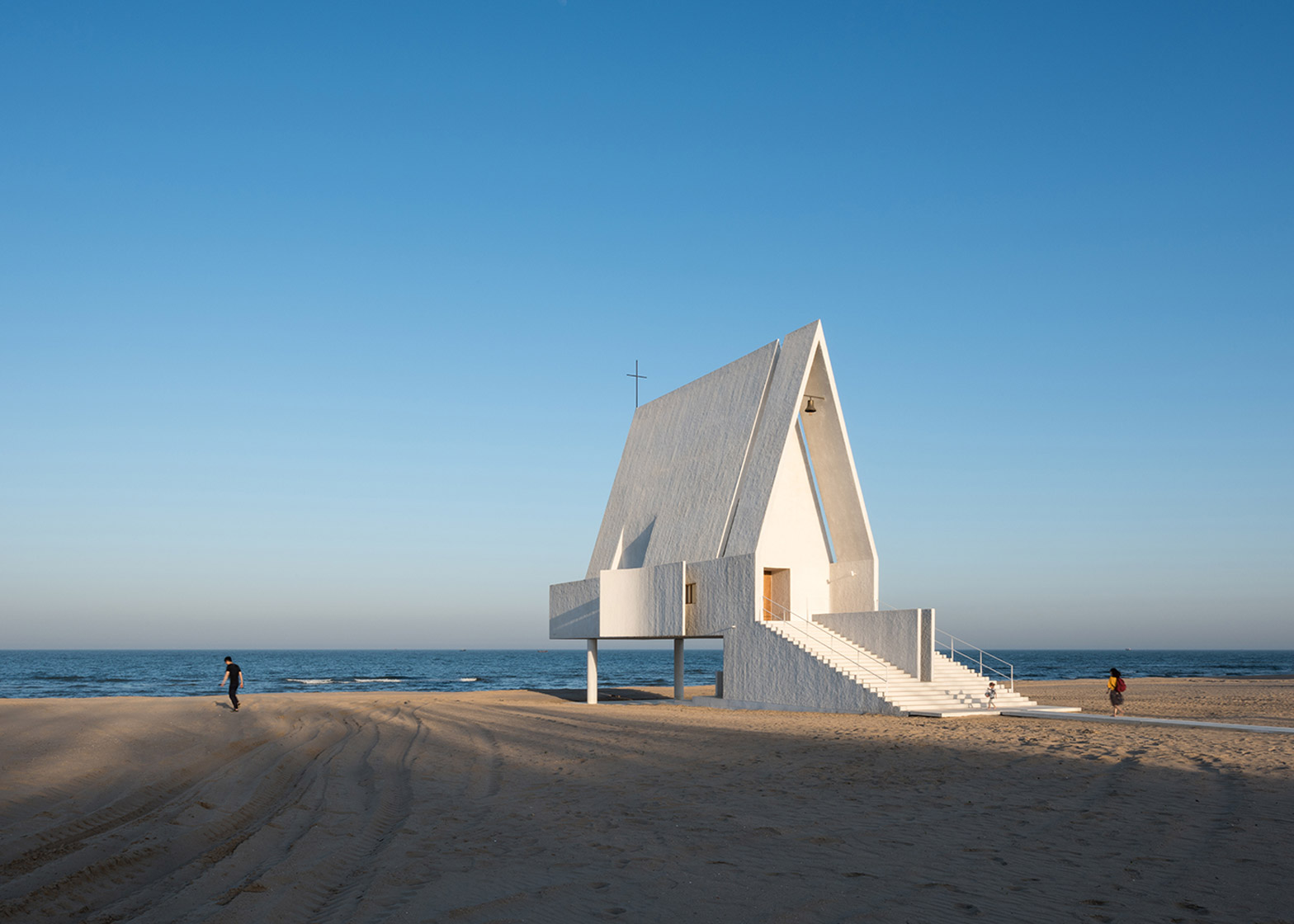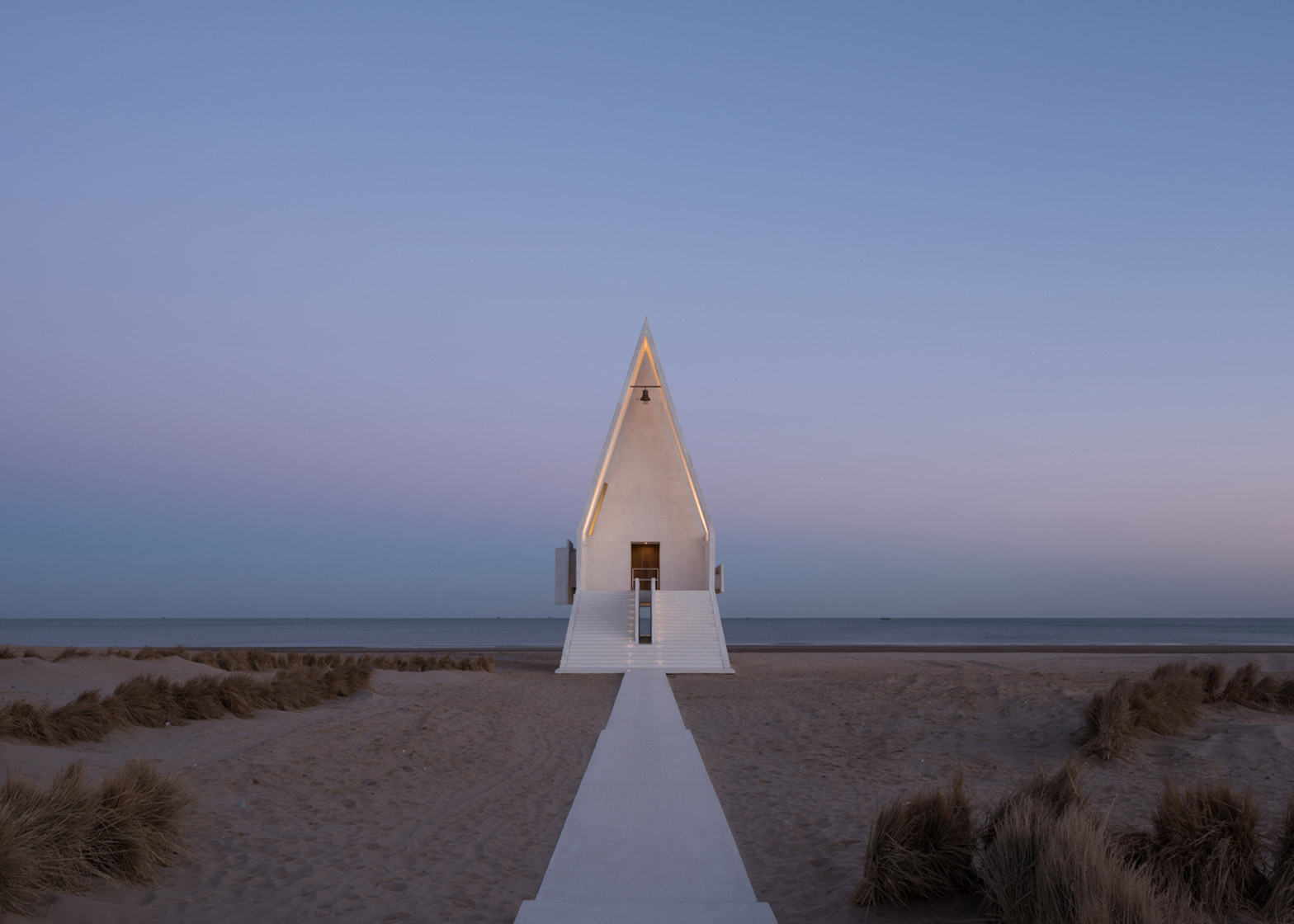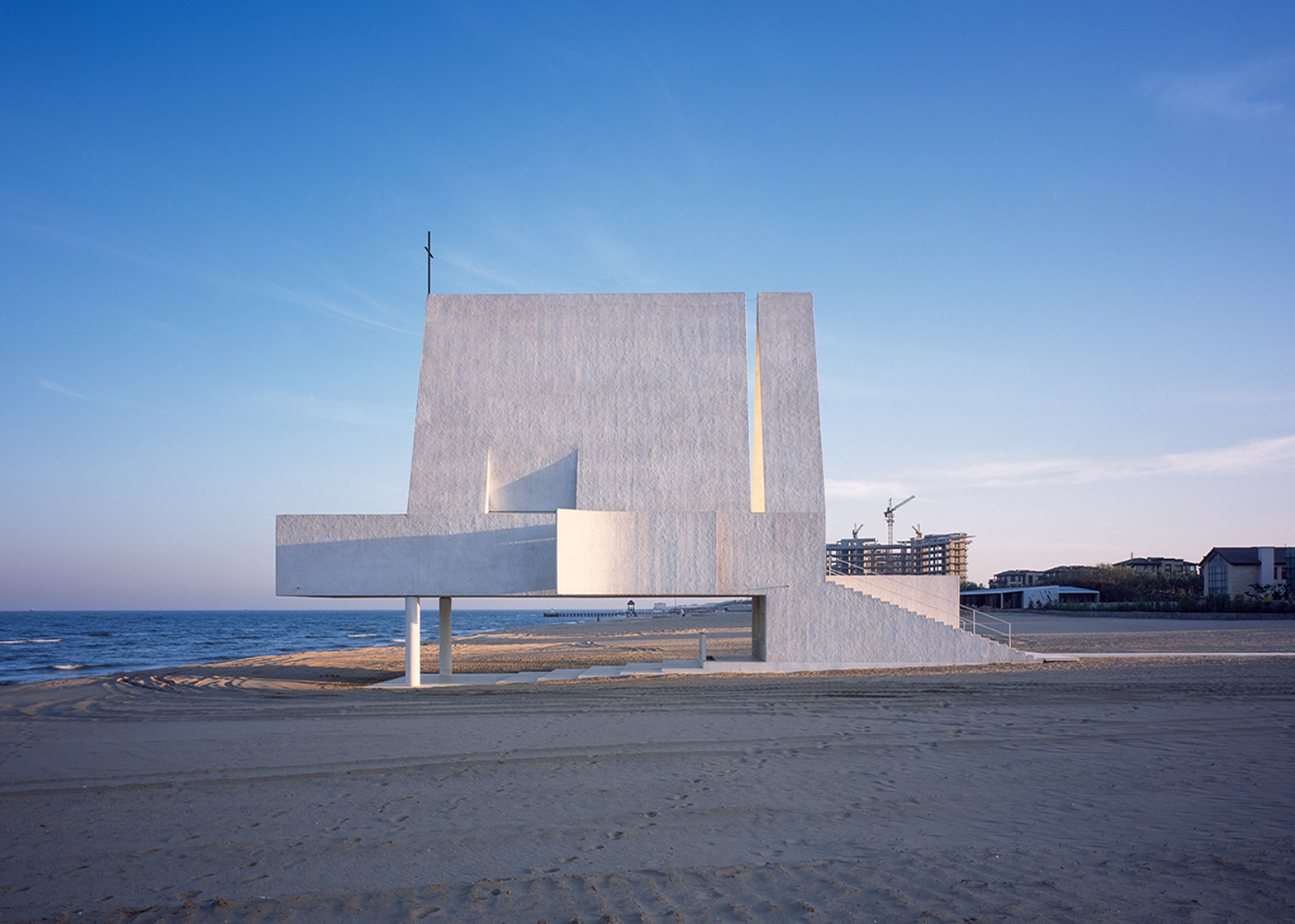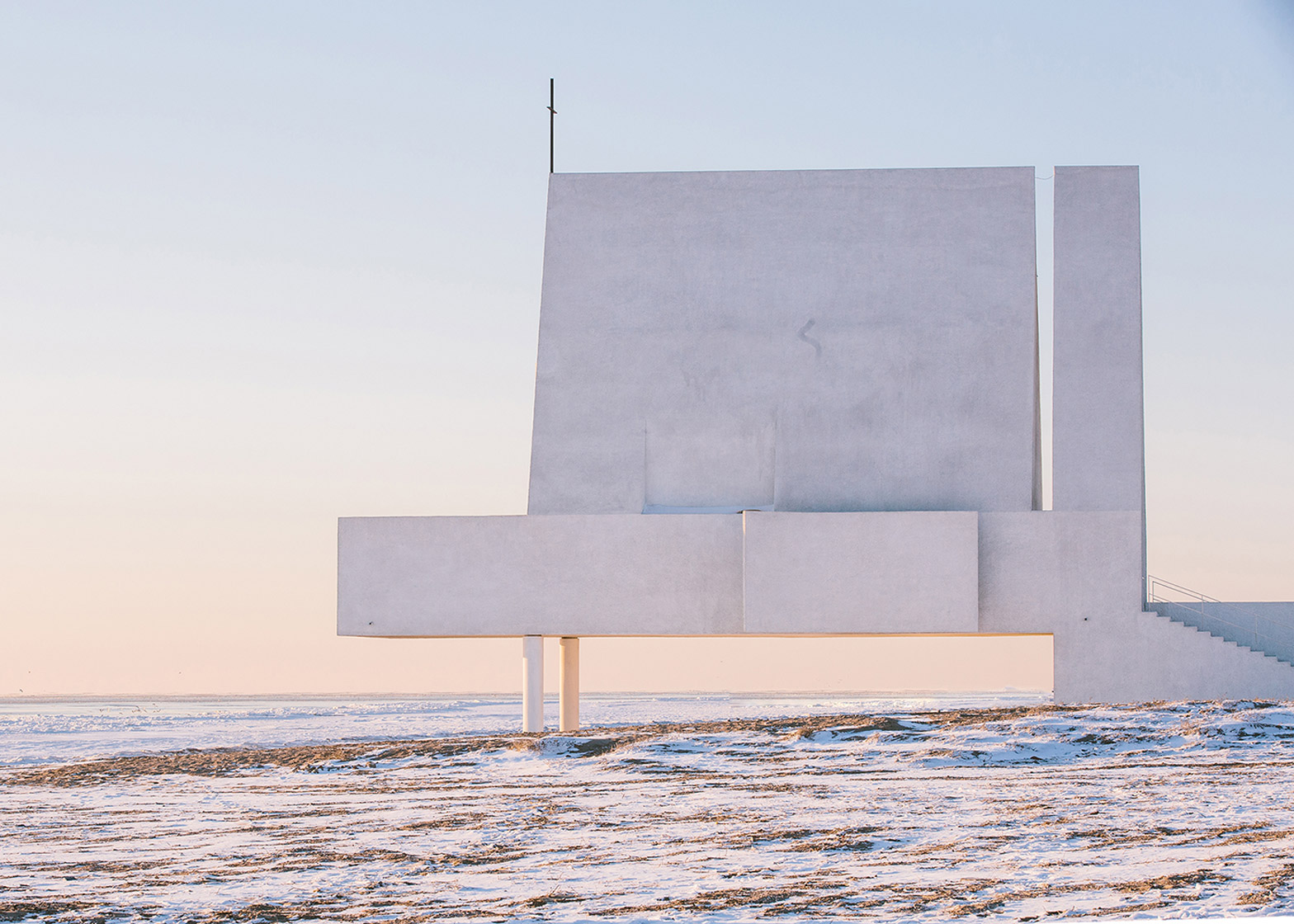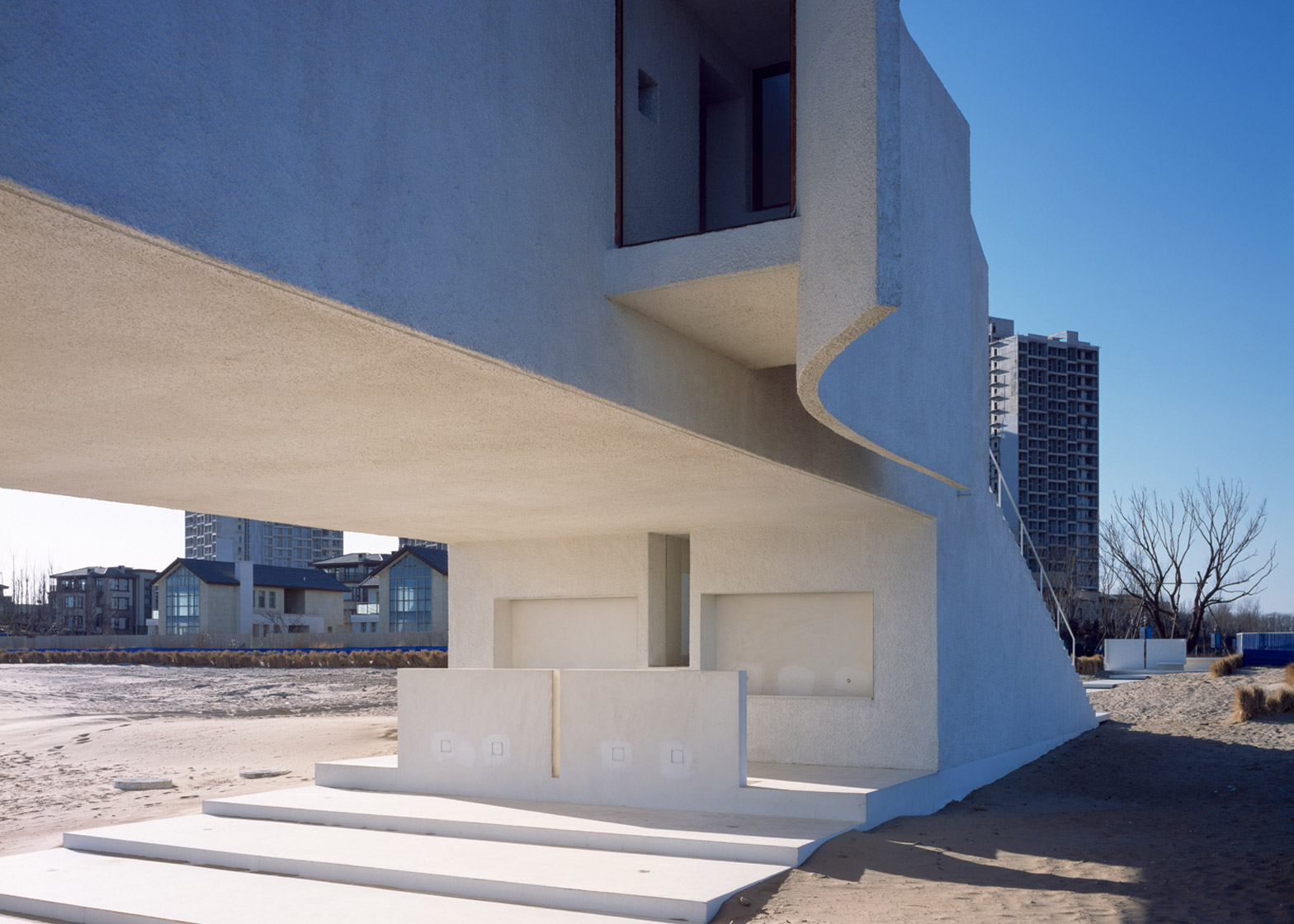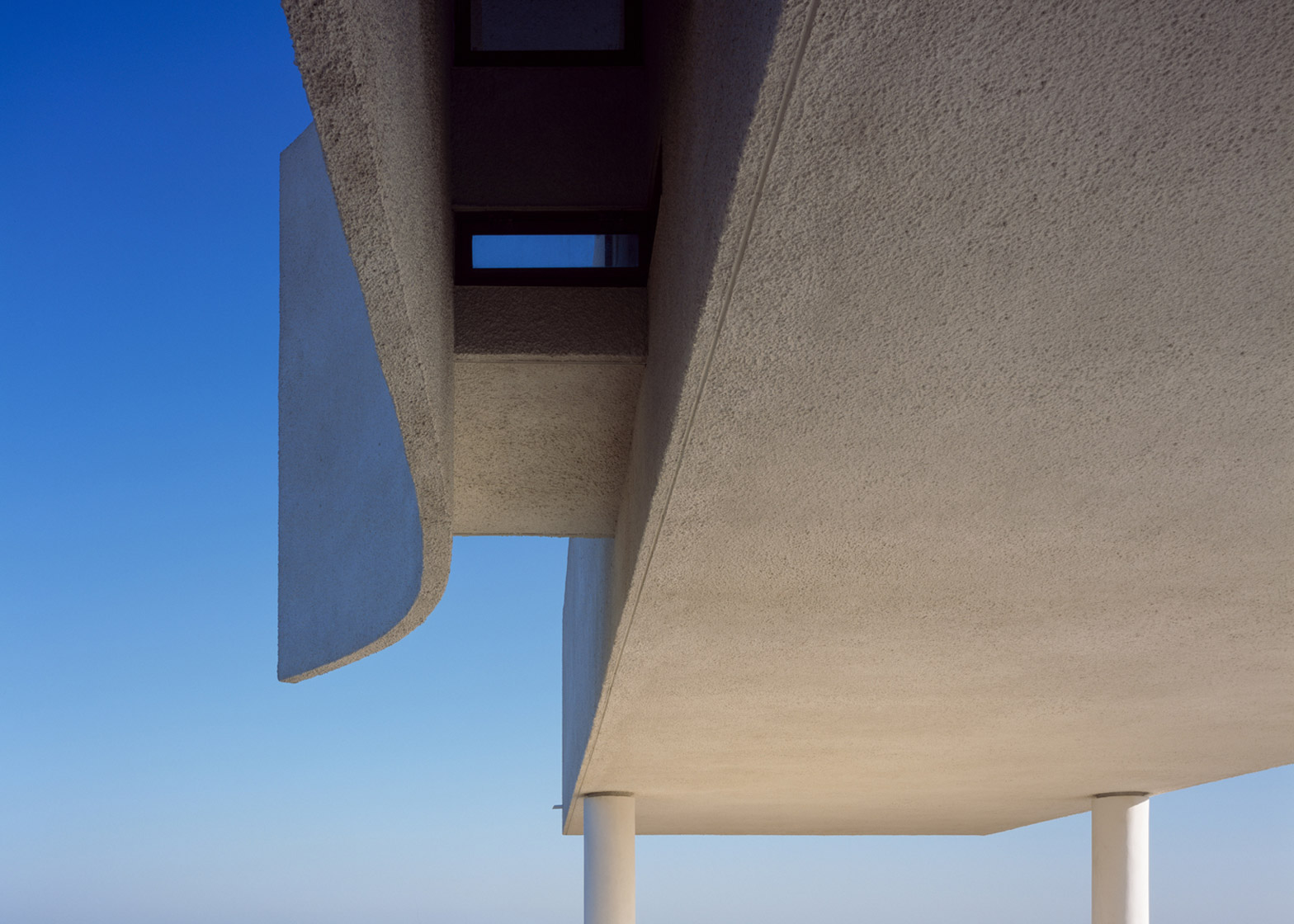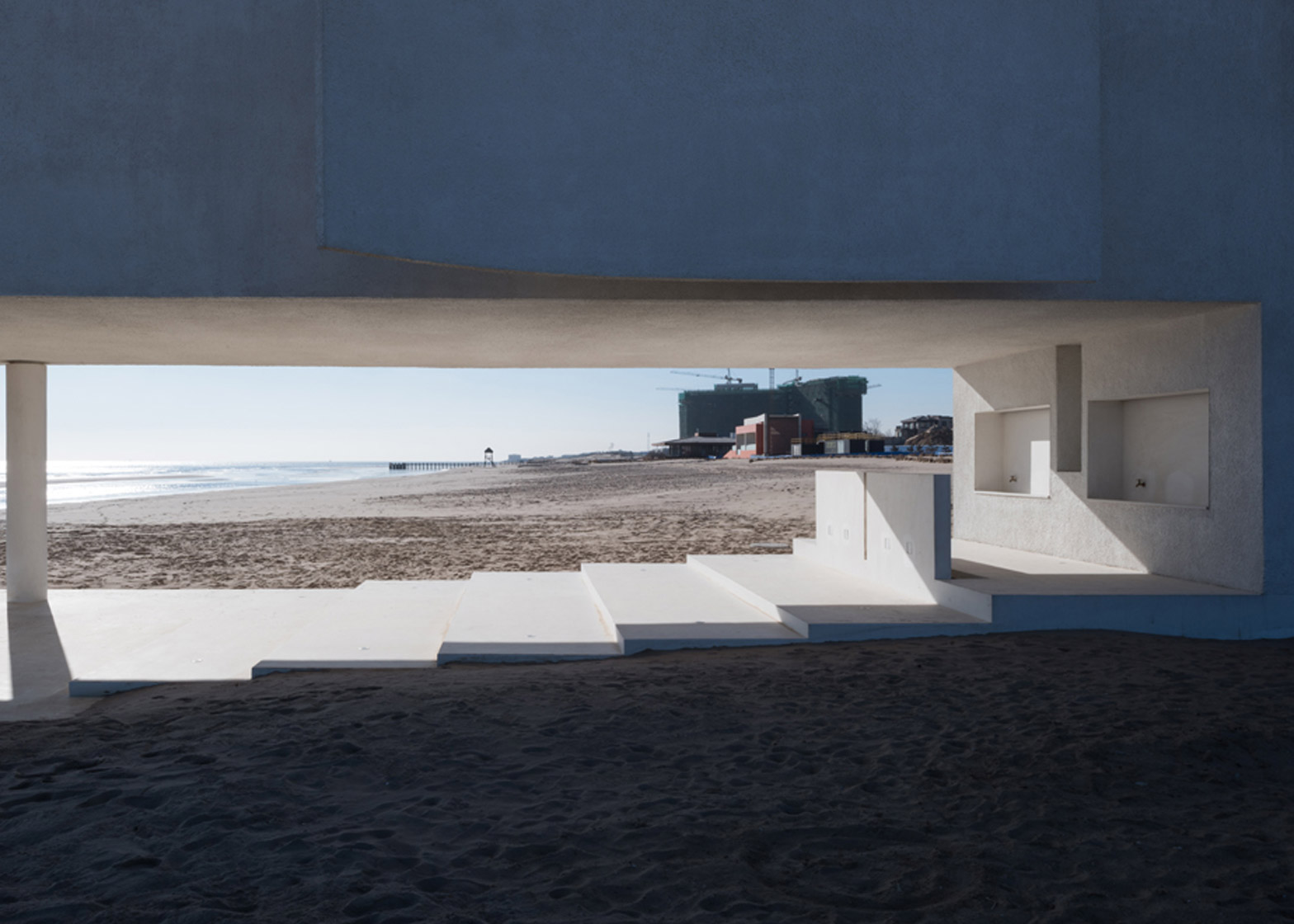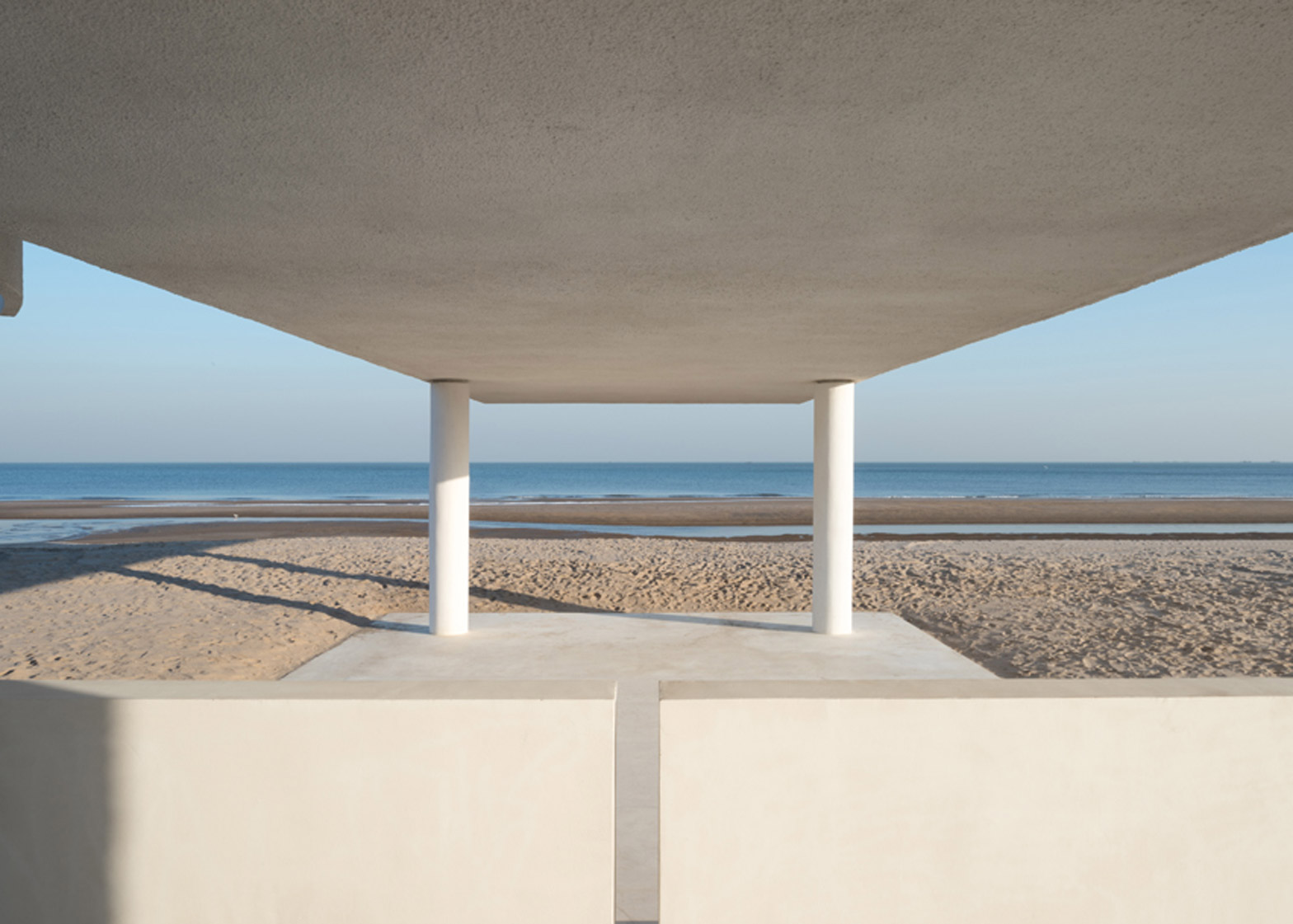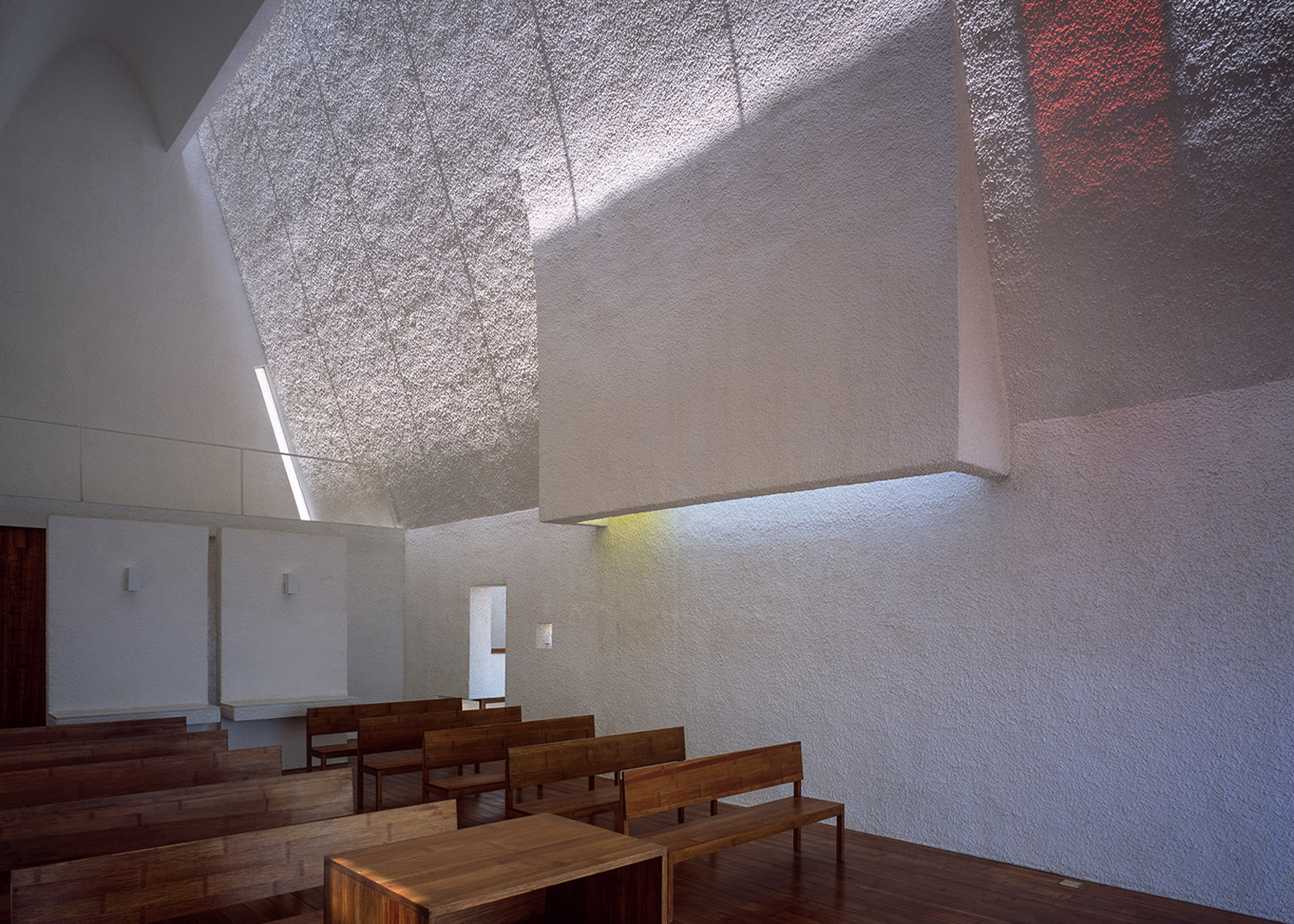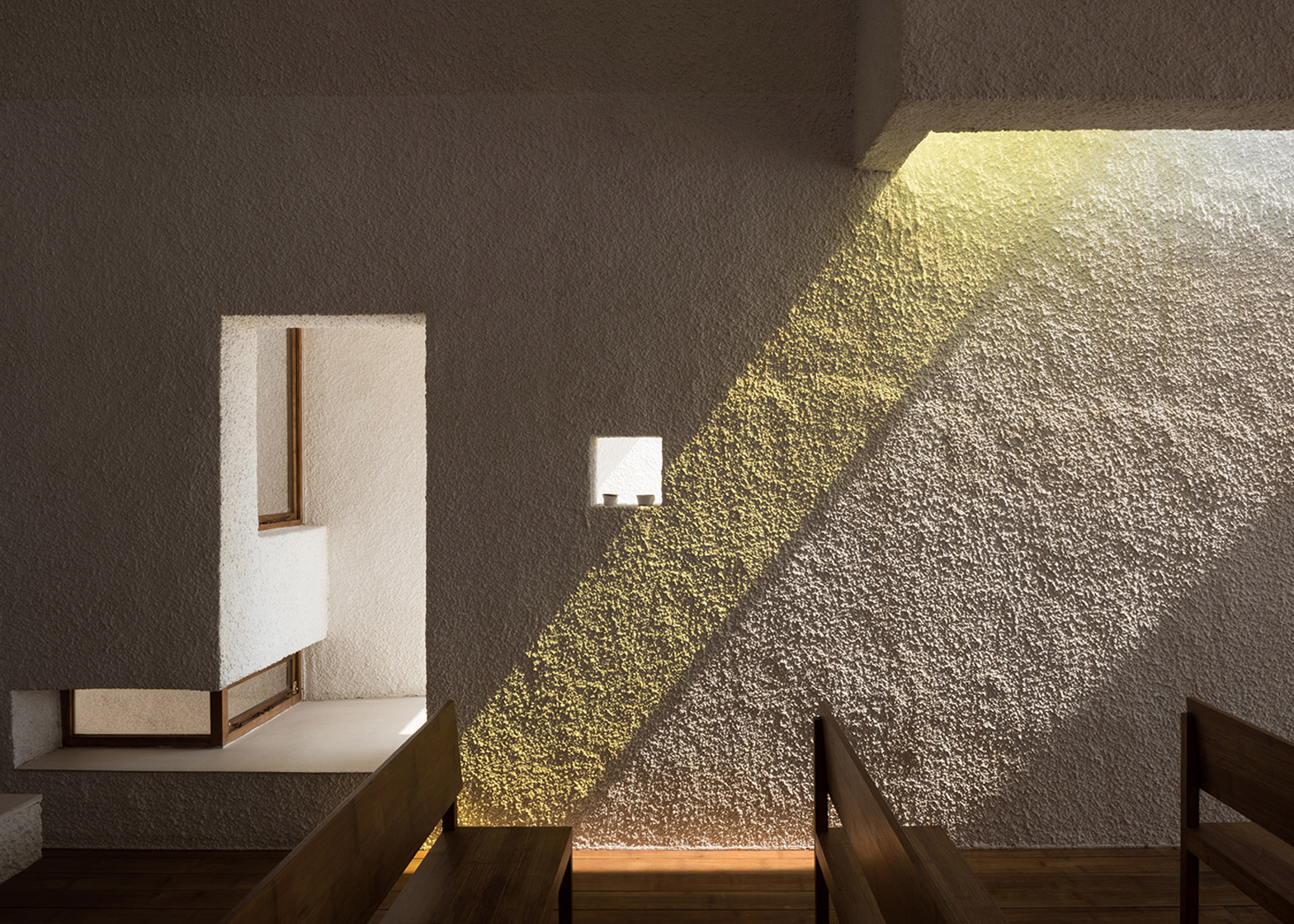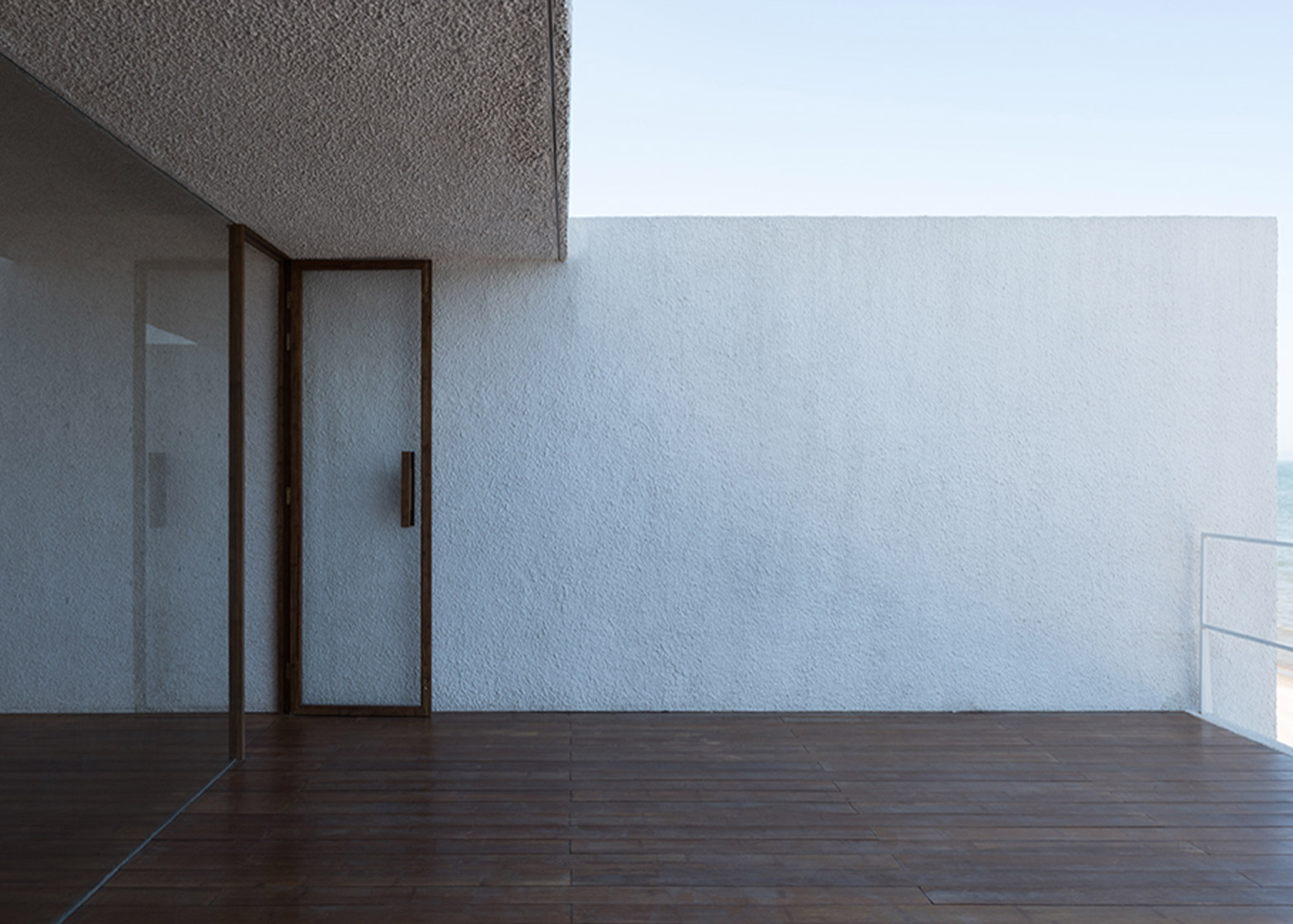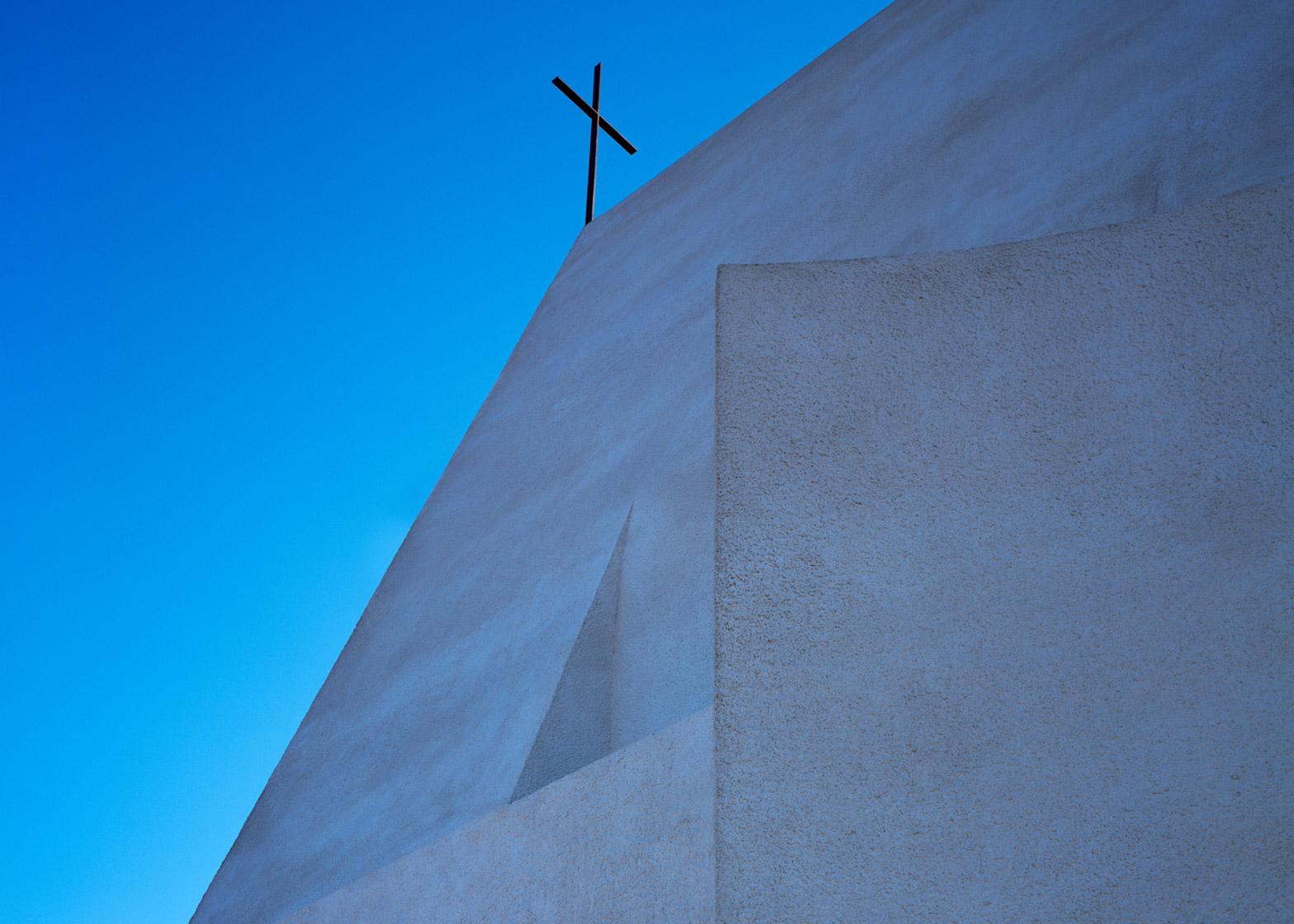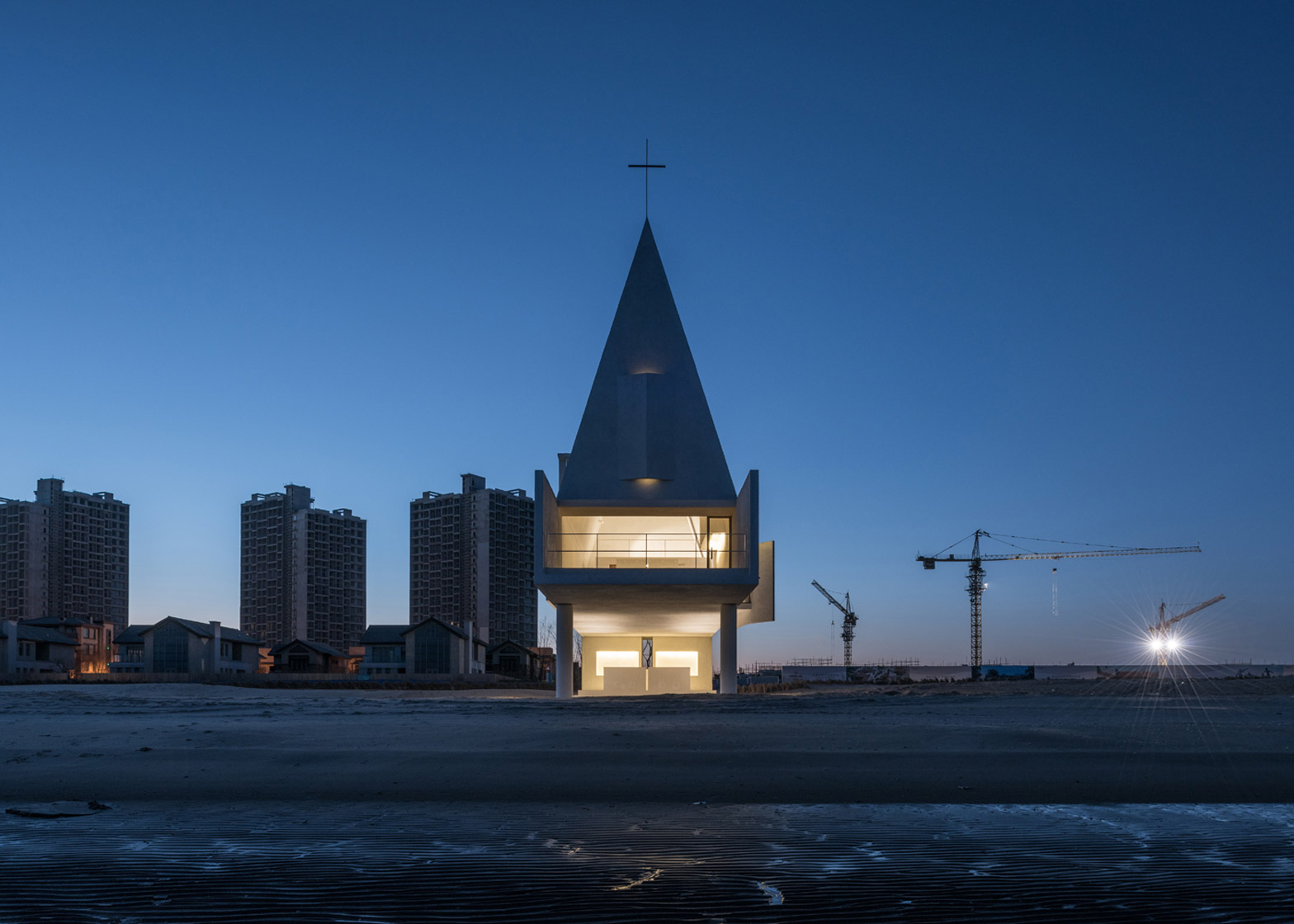Beijing studio Vector Architects has built a concrete chapel on a Chinese beach, but raised it up above the sands so that seawater can wash underneath (+ slideshow).
Named Seashore Chapel, the sculptural building provides a small place of worship for Beidaihe, a seaside town east of Beijing.
It is the closest building to the sea anywhere in the town, as Vector Architects wanted to create a more spiritual experience for visitors.
But this proximity to the shoreline meant it had to be raised up on concrete columns.
When the tide is out it is possible to take shelter underneath the structure.
If the tide became too high the building would become completely separated from land, although the architects claim this is unlikely to happen because the sea level in Bohai Bay is "fairly stable".
"We imagine the Seashore Chapel as an old boat drifting on the ocean a long time ago," said Vector Architects.
"The ocean receded through time and left an empty structure behind, which is still lying on the beach."
"When the tide rises, this space will be submerged by water. At that moment, the imagery of the drifting boat emerges out of the chapel," added the team.
The building features a steeply pitched roof, concealed stained-glass windows and a generous balcony facing the ocean.
Its entrance is a grand staircase, which doubles up as an informal seating area. A 30-metre-long pathway leads to this entrance, while the roof canopy overhead functions as a bell tower.
The concrete structure is coated in white stucco, giving it a textured finish both inside and outside.
At certain times of the day, daylight filtering in through concealed openings in the roof creates distinct beams of colour across the interior surfaces.
At other times, it illuminates a cross nestled into a wall recess.
"At the noon of spring, summer and fall, when the solar altitude is almost perpendicular, the light projects directly onto the wall on the north, generating a vivid lighting effect," said the architects.
"Although the lights does not stay for long, the texture of the stucco wall is emphasised and celebrated by the light at the moment, and becomes a touchable skin," they added.
Bamboo floorboards offer some warmth to the otherwise monotone surfaces, and are complemented by wooden benches. The flooring continues out onto the balcony, which is located behind a large window wall.
Other spaces in the 270-square-metre building include a mediation room – a space big enough for just one person, framed by a wall that appears to have been peeled back.
There is also a toilet, a small office and a mezzanine level for a piano player.
Seashore Chapel will be used for a variety of community events, as well as religious ceremonies. It was finished in late 2015, shortly after Vector Architects completed a similar project in the neighbouring town of Nandaihe – a seaside library.
Both projects were commissioned by the same client, property developer Beijing Rocfly Investment.
Vector Architects is led by architect Gong Dong. Past projects by the studio include a farm pavilion for washing and prepare crops and a community centre with a huge grassy roof canopy.
Photography is by Chen Hao.
Project credits:
Client: Beijing Rocfly Investment
Design firm: Vector Architects
Principal architect: Gong Dong
Site architect: Dongping Sun
Design team: Dongping Sun , Yi Chi Wang, Jiahe Zhang
Structural & MEP engineering: Beijing Yanhuang International Architecture & Engineering Co
Structural consultant: Lixin Ji, Zhongyu Liu

